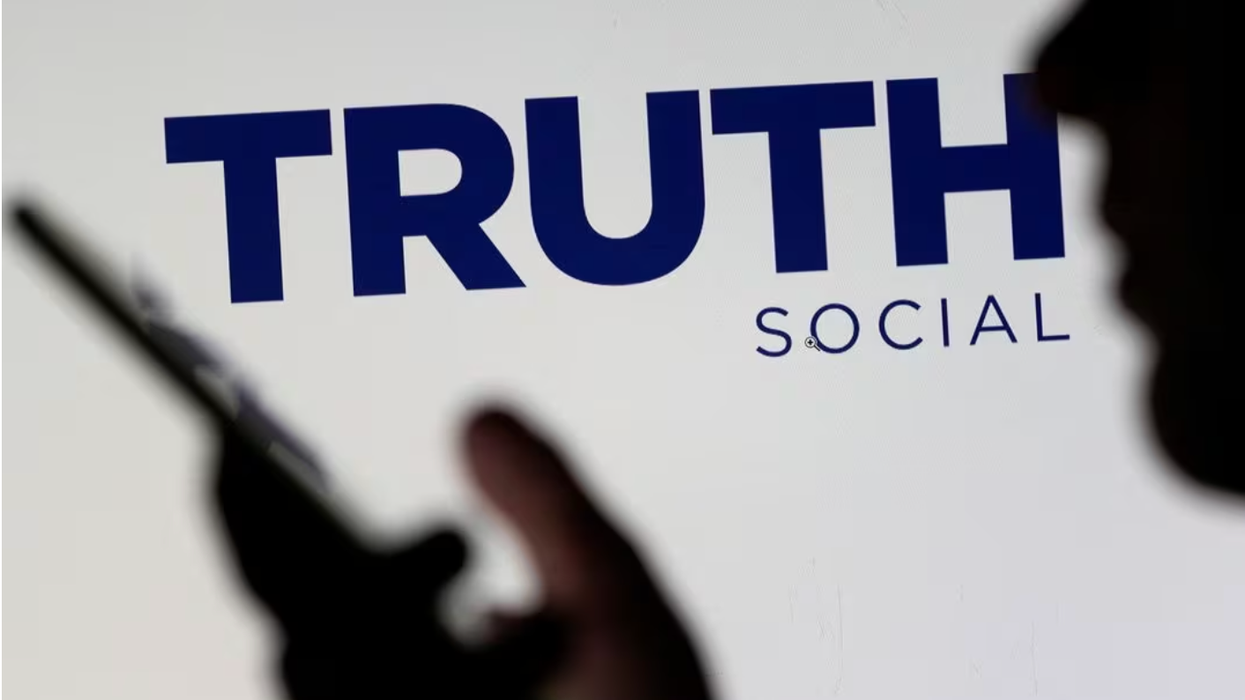Truth Social Investors (And Trump) Lose Billions In Post-Conviction Stock Plunge
Investors in Truth Social — former President Donald Trump's social media platform — are losing money fast. And financial markets aren't feeling particularly bullish about the stock price of a company whose majority owner is a convicted felon.
According to the latest data from MarketWatch, the price of Trump Media and Technology Group (trading on the Nasdaq Composite as $DJT) is hovering around $33 per share. This is a significant drop from the $51.84 per-share price $DJT posted on May 30 — the day a 12-person jury in New York convicted the former president on 34 felony counts of falsifying business records.
The share's roughly 40 percent decline in value impacts its principal shareholder more than anyone else. The May 30 share price of $51.84 meant Trump's approximately 114.75 million shares in the company (nearly two-thirds of all total shares) were worth roughly $5.9 billion. But as of June 18, those shares are now worth roughly $3.8 billion — meaning Trump's personal net worth has declined by more than $2.1 billion in less than three weeks.
Trump Media and Technology Group has rebounded in the past from slumps in the markets, however. The stock hit a low point of $22.84 per share in mid-April, when jury selection for the former president's New York criminal trial was underway. It rebounded to $54.39 in early May, though it has yet to recover from its current slide. In the immediate aftermath of Trump's guilty verdict, the share's price plunged by nine percent in after-hours trading, marking a drop in net worth of roughly $500 million in roughly 24 hours.
Last month, the company reported a quarterly loss of more than $300 million. However, Truth Social CEO Devin Nunes — a former Republican congressman from California — attributed the poor financials to the company's merger with Digital World Acquisition Group, and downplayed pessimism from investors as a temporary malaise motivated by politics.
"We have consummated our merger and dispensed with the vast bulk of merger-related expenses, leaving the Company well-capitalized and supported by a legion of retail shareholders who believe in our mission to provide a free-speech beachhead against Big Tech censorship," Nunes stated at the time. He added that Trump Media and Technology Group has "more than $200 million in the bank" and "more than 600,000 retail shareholders who believe in our vision."
In April, The Guardian reported that $DJT was becoming a favorite target of "short sellers," or investors who make money by betting that a company's stock will fail. Nunes accused some short sellers of engaging in the illegal practice of "naked" short selling, in which someone shorting the stock does so without first borrowing the shares or insuring that they can be borrowed.
"[Naked short] perpetrators need to be criminally prosecuted, possibly using federal and state RICO statutes," Nunes said in a statement shared with the website Just The News.
Whether Truth Social is a victim of naked short schemes remains unproven. But short sellers may find a continued reliable stock to bet against in $DJT based on its tenuous financial position. In 2023, a regulatory filing with the Securities and Exchange Commission (SEC) showed that the company had losses of $58 million and revenue of just $4.1 million. That SEC filing also showed that the company needed the funding provided by its merger to stay afloat.
Under the merger agreement, Trump can't sell any of his shares for six months. This means he's powerless to liquidate his rapidly declining stake in the company until at least September. The stock's value may decline even further after Trump is sentenced on July 11. While the 34 charges he was convicted on are class E felonies, which don't require jail time, Judge Juan Merchan has the option to sentence the 45th president of the United States to as much as 20 years behind bars.
Reprinted with permission from Alternet.












